Earth Clamps are used to make an electrical connection between a conductor and the earth. It is commonly used in electrical and construction applications to provide a secure and reliable grounding point for electrical systems and equipment.
Showing all 11 results
-
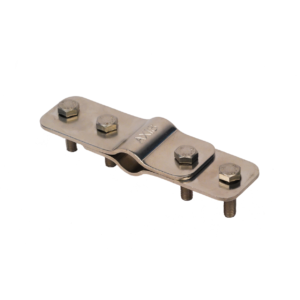
Earth Rod Clamps
Select options This product has multiple variants. The options may be chosen on the product page -
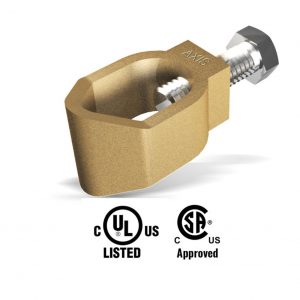
Ground Rod Clamps – cULus Listed & CSA US Approved
Select options This product has multiple variants. The options may be chosen on the product page -

Hammerlock Ground Clamp
Select options This product has multiple variants. The options may be chosen on the product page -
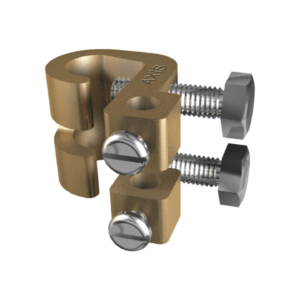
Rebar Clamp
Select options This product has multiple variants. The options may be chosen on the product page -

Rod To Cable Clamp – Type G
Select options This product has multiple variants. The options may be chosen on the product page -
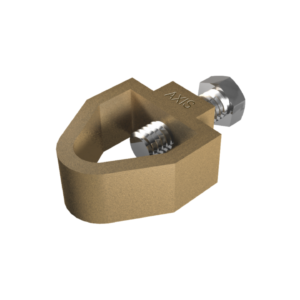
Rod To Tape Clamp – Type A
Select options This product has multiple variants. The options may be chosen on the product page -
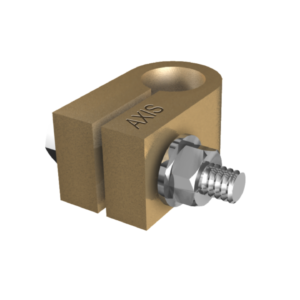
Split Connector Clamp – Type B
Select options This product has multiple variants. The options may be chosen on the product page -
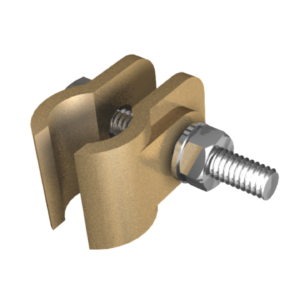
Split Connector Clamp – Type B (Adjustable)
Select options This product has multiple variants. The options may be chosen on the product page -
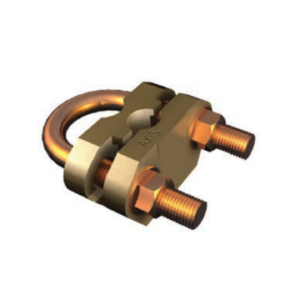
U-Bolt Rod Clamps
Select options This product has multiple variants. The options may be chosen on the product page -
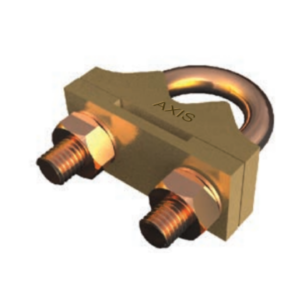
U-bolt Rod Clamps – Type ‘E’ with Double Plate
Select options This product has multiple variants. The options may be chosen on the product page -
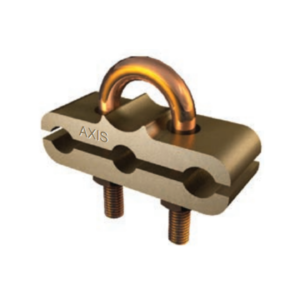
U-bolt Rod Clamps 3 Conductor Type
Select options This product has multiple variants. The options may be chosen on the product page
Earth Clamps are made of copper alloys and have a clamping mechanism that allows them to be attached to a conductor such as a grounding wire or electrical conduit. The clamp is then secured to a metal object such as a steel structure or a ground rod, establishing an electrical connection between the conductor and the earth.
There are several different types of earth clamps available, each designed for specific applications and types of conductors. Some common types of earth clamps include bolt-type clamps, conductor clamps, and cable clamps.
In addition to providing a grounding connection, earth clamps can also be used to hold and secure electrical conductors in place, helping to prevent them from coming loose or falling out of place. They are an important component of any electrical system, as they help to ensure the safety and reliability of the system by providing a secure grounding point.
Types of Earth Clamps
Copper Rod to Cable Clamps (RCC)
They are made of copper alloys and feature a clamping mechanism such as a bolt or screw for securing the clamp to the grounding rod and cable. They are designed to withstand the high current and voltage levels that are commonly found in electrical systems, and are an important component of any grounding system, helping to ensure the safety and reliability of the system by providing a secure connection between the grounding rod and cable.
U Bolt Clamps – Rebar To Rebar & Copper Earth Cable Clamps
Copper “U” bolts with gunmetal rebar clamps are used to join re-bar to re-bar or stranded cable, creating a durable and corrosion-resistant mechanical connection.
Split Connector Clamps
Split connector clamps are used to secure cable lugs to earth rods. They are designed to fit a variety of earth rods and come equipped with an M12 x 50mm set screw and M8 x 40mm fittings (ERS010). These clamps provide a reliable connection between the cable lugs and earth rods.
Tower Earth Bonds
Tower earth bonds are used to bond copper conductors to steel surfaces. The clamp is attached by drilling a hole in the steel and securing it with the set screw provided. These clamps provide a strong and reliable connection between the copper conductor and steel surface.
Rebar Clamps
Rebar earthing clamps, also known as rebar grounding clamps, are used to connect grounding wire or rod to reinforcing steel (rebar) in concrete structures. They are often used in the construction of buildings, bridges, and other structures to ensure that the reinforcing steel is properly grounded and meets safety codes.



